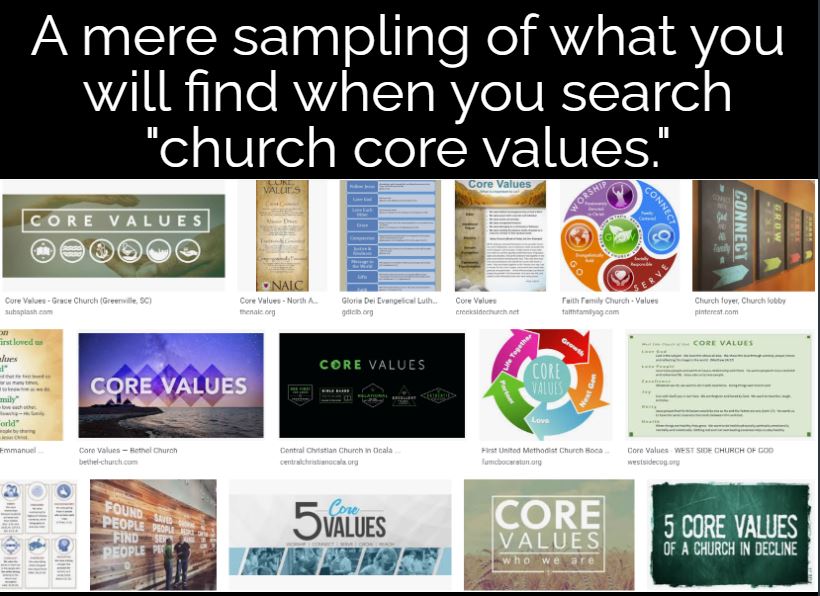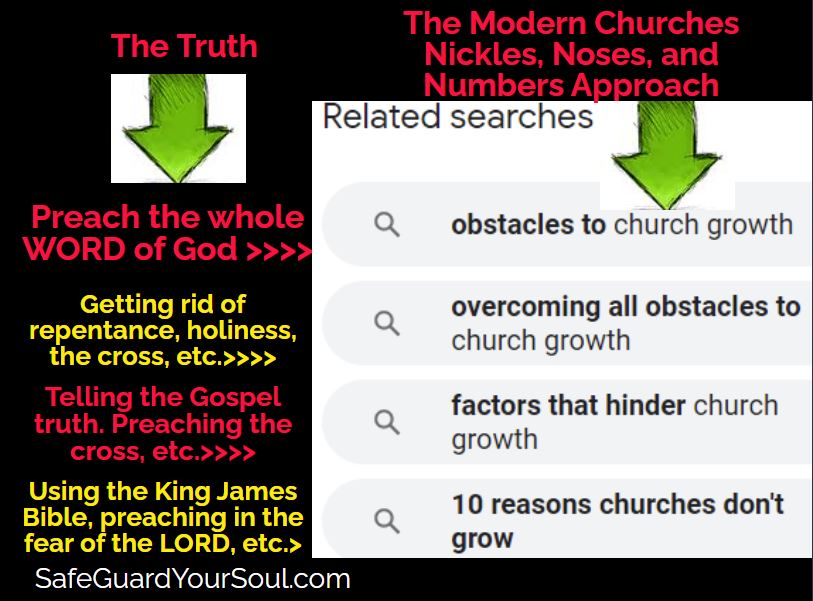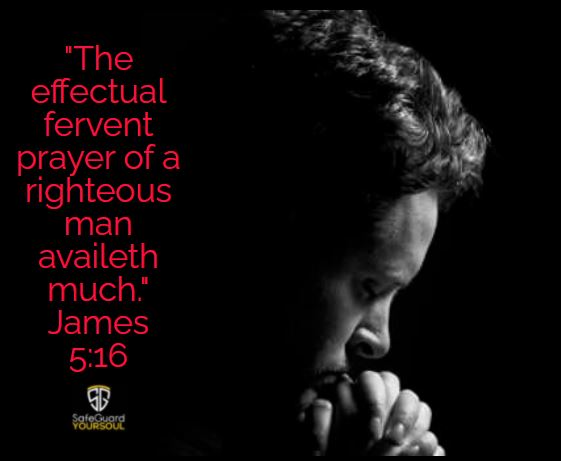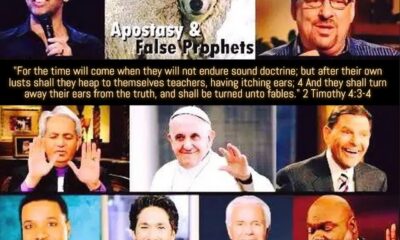Excerpt from the book I Die Daily
The Essential Cross of the Believer
“For whosoever will save his life shall lose it.” Matthew 16:25
Now that we know who the Way is—Jesus, let’s look into what this very Son of God Himself said concerning those who would follow Him. After all, if a person is going to go to God’s Heaven, he needs to find out what God Himself said is essential to get there, right?
Then said Jesus unto his disciples, If ANY man will come after me, let him deny himself, and take up his cross, and follow me. For whosoever will save his life shall lose it: and whosoever will lose his life for my sake shall find it. For what is a man profited, if he shall gain the whole world, and lose his own soul? or what shall a man give in exchange for his soul? Matthew 16:24-26
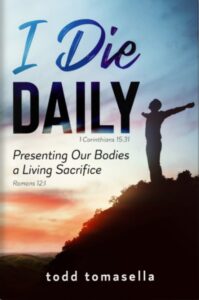 Like it or not, Jesus is speaking here of the eternal soul of every man. If need be, read His words again here. Notice that the Son of God uses the terms “if ANY man” and “whosoever.” Jesus is speaking to all about His requirements and conditions. (Anybody want to argue with the Son of God?) Did you notice that there is no special privilege or concession given here for those who have previously been saved? We should rid our minds of the subtle deception that we are somehow “secure” outside of the protection that comes from obedience to God’s Word (Prov. 30:5; Acts 20:32). Only those who are not currently “doers” of the Word of God are deceived into thinking they are secure while not presently abiding in Christ. “But be ye doers of the word, and not hearers only, deceiving your own selves” (James 1:22).
Like it or not, Jesus is speaking here of the eternal soul of every man. If need be, read His words again here. Notice that the Son of God uses the terms “if ANY man” and “whosoever.” Jesus is speaking to all about His requirements and conditions. (Anybody want to argue with the Son of God?) Did you notice that there is no special privilege or concession given here for those who have previously been saved? We should rid our minds of the subtle deception that we are somehow “secure” outside of the protection that comes from obedience to God’s Word (Prov. 30:5; Acts 20:32). Only those who are not currently “doers” of the Word of God are deceived into thinking they are secure while not presently abiding in Christ. “But be ye doers of the word, and not hearers only, deceiving your own selves” (James 1:22).
The crucified life is God’s only solution for complete victory over all sin. Walk it. Read Romans 6 each morning this week prayerfully. Stop listening to those not preaching the cross.
The apostle Paul said, “I die daily” (1 Cor. 15:31). How did Paul “die daily”? How is this exemplary apostle’s dying depicted in Scripture? He sentenced himself to death, kept under his body of sin, and was crucified with Christ and to the world, and the world to him. He was buried with Christ and determined to glory in Christ’s cross alone (Rom. 6:3-4; 1 Cor. 9:27; 2 Cor. 1:9; Gal. 2:20; 6:14).
“Oh how the devil hates the message of the cross!” John Umlauf
We were all born in sin and “dead in sins,” and now the LORD “hath quickened us (made us alive) together with Christ” (Rom. 6:8; Eph. 2:5.) After being found and saved by the LORD, the believer should follow Christ in water baptism, yet only to show that he is now “dead with Christ” and that Christ now reigns in his life, as he is now “raised up” with Christ (Rom. 6:3-4; 8:11). Water baptism is the public announcement showing and openly declaring one’s own death, burial, and resurrection with Christ, one’s new Master. The death of self is symbolized in the going down into the water, and the coming up out of the water represents the resurrection accomplished by Jesus and now made effectual in that life. The Gospel is not about H2O, but rather it’s about being baptized into Christ’s death—being dead, buried, and raised up with Him (Rom. 6:3-4; Col. 2:11-12). As we are dead with Christ and to self, buried with Him, He raises us up in His power to please Him.
One’s entrance into the kingdom of God at initial salvation is only the beginning point of his participation in the Gospel—the death, burial, and resurrection life of Christ. The born-again saint never outgrows his essential need to participate with Jesus in the Gospel. The true disciple follows Christ “daily,” and that includes denying himself and taking up his cross to be crucified with his LORD and Savior. He chooses Christ who is the life, the only way, and the truth; and is therefore ready for His soon return. “When Christ, who is our life, shall appear, then shall ye also appear with him in glory” (Colossians 3:4).
Romans 6 is not speaking of water baptism, but it is that which is signified or symbolized by water baptism—being dead to self and sin, buried with Christ, and raised up to new life with Jesus, to no longer serve sin and please self but Christ. Look at verse 4 of Romans 6: “Therefore we are buried with him by baptism into death: that like as Christ was raised up from the dead by the glory of the Father, even so we also should walk in newness of life.”
Note the words of Holy Scripture here— “buried … death … raised up.” This is the Gospel as it is being lived out in our lives. As we choose to daily die—moment by moment—giving way to His greater purpose, He raises us up out of the place of death and burial to be led and used of Him.
Anointed to the Burial
I remember fondly the days leading up to my water baptism as a young believer. My pastor at the time was keenly aware of the importance of people understanding what water baptism is, so he gave me a question-and-answer type work sheet to go through. Each question gave Scriptures to study and get the answers from. So, when I was water baptized there was a realization and spiritual anointing that came upon me—a distinct sealing type phenomenon by the Holy Spirit in which I was buried or hid with Christ in God. There was clearly a work of the Holy Spirit that day.
Beloved, there is no power or magic in water. God is trying to get at death to self, and His Spirit enables such. Water baptism merely represents going down into the death process and coming up out of the water represents the raised-up life. Without the work of the divine Person of the Holy Ghost and the believer’s going down into the death of Christ, water baptism is futile.
It is the work of the Spirit of God that is essential in our new birth, death, burial, and resurrection, just as He participated in our LORD’s birth, death, burial, and resurrection (Luke 1:35; Rom. 8:11; Col. 2:11-12).
For to this end (for this chief purpose) Christ both died, and rose, and revived, that he might be Lord both of the dead and living. Romans 14:9
Not only is the Holy Spirit’s involvement and Jesus Christ’s sacrifice on His cross essential, where He worked with Christ to shed His blood to redeem us, but according to this same and only Savior, the taking up the cross to deny and bury self is also essential in pleasing God. His resurrection rule cannot occur without the willing participation of the recipient of His salvation. Jesus died to buy us back from sin, Satan, and slavery to self; and now our lives are made new in Him, all things now being of God and under Christ’s reign (Rom. 14:9; 2 Cor. 5:17-18).
And that he died for all, that they which live should not henceforth live unto themselves, but unto him which died for them, and rose again. 2 Corinthians 5:15
Those redeemed by the One who bled on that cross that stood atop Calvary’s hill, should from the moment they are grafted in, no longer serve self but rather the Savior.
The way the believer lives unto (pleases) the LORD and not self, is by the power of the One who was for us “slain from the foundation of the world.”
And all that dwell upon the earth shall worship him (the antichrist), whose names are not written in the book of life of the Lamb slain from the foundation of the world. Revelation 13:8
It all began “from the foundation of the world” when in His mind, “God so loved the world that he gave his only begotten Son” (Jn. 3:16; Rom. 5:6, 8). So, redemption through “the Lamb slain,” which grants His overcoming grace, began in the mind of God from “the foundation of the world” (Jer. 1:5; Rev. 13:8). How could we ever now doubt how much He loves us! It is to Him alone who is worthy that we, with our lives, now give “honour, and glory, and blessing.”
Saying with a loud voice, Worthy is the Lamb that was slain to receive power, and riches, and wisdom, and strength, and honour, and glory, and blessing. Revelation 5:12
All this being said, we should observe that the LORD doesn’t do things against the free moral agency He gave to every man. The individual must be “willing and obedient” if he is to “eat the good of the land” (Isa. 1:19-20).
Gaze, oh gaze on the divine form, the eternal glory, the heavenly beauty, the tenderly pleading gentleness of crucified love, as it stretches out its pierced hands and says, ‘Oh, will you not abide with me?’ – Andrew Murray, Abide in Christ, p. 175
“The New Man”
That ye put off concerning the former conversation the old man, which is corrupt according to the deceitful lusts; And be renewed in the spirit of your mind; And that ye put on the new man, which after God is created in righteousness and true holiness. Ephesians 4:22-24
You are no longer your own, but rather bought with a price (1 Cor. 6:19-20).
If a saint chooses not to live out of the “new man, which after God is created in righteousness and true holiness,” he will by default revert back to the Adamic nature and its sinful deeds. Is this permissible in God’s eyes? Does the LORD overlook the sins of those He has saved?
What shall we say then? Shall we continue in sin, that grace may abound? God forbid. How shall we, that are dead to sin, live any longer therein? Know ye not, that so many of us as were baptized into Jesus Christ were baptized into his death? Therefore we are buried with him by baptism into death: that like as Christ was raised up from the dead by the glory of the Father, even so we also should walk in newness of life. For if we have been planted together in the likeness of his death, we shall be also in the likeness of his resurrection: Knowing this, that our old man is crucified with him, that the body of sin might be destroyed, that henceforth we should not serve sin. For he that is dead is freed from sin. Now if we be dead with Christ, we believe that we shall also live with him: Romans 6:1-8
Hint: renewing your mind is biblical but it will never take the central place of the crucified life. The extent of “solutions” given in the modern church include renewing your mind. Yes yet that comes after the cross in kingdom priority – the crucified life – which is never mentioned in the apostate modern church world.
v1 – the cross
v2 – renewing the mind
“I beseech you therefore, brethren, by the mercies of God, that ye present your bodies a living sacrifice, holy, acceptable unto God, which is your reasonable service. 2 And be not conformed to this world: but be ye transformed by the renewing of your mind, that ye may prove what is that good, and acceptable, and perfect, will of God.” Romans 12:1-2
Whenever the constant of the cross, the crucified life, is absent from our personal lives, there will be defeat, there will be no victory.
Trying to renew your mind, changing your thinking, is only successful after the fact of a life that is “crucified with Christ.” (Romans 6; Galatians 2:20; 5:24; 6:14, etc.
Putting Your Foot Down!
https://safeguardyoursoul.com/dominating-the-devil/
The “But” Factor
The taking up of the cross, the implement of death to self, is essential in separating the saint from the taint of sin, self, and Satan, which would otherwise defile us in the eyes of Him who is “Holy, holy, holy” (Isa. 6:3; Rev. 4:8).
Are you beginning to see why the cross is essential—both Christ’s and ours? The LORD told His own covenant people that their sins had separated them from Him. “But your iniquities have separated between you and your God, and your sins have hid his face from you, that he will not hear” (Isaiah 59:2).
The word “but” here speaks of the dividing factor or attribute of sin. Sin interrupts our fellowship with Him who is holy. Sin still separates. Both the cross of Jesus (first and foremost) and our carrying our own cross deal with the problem of sin, but only when applied and participated in.
To take up the cross in obedience to Christ’s command is to agree with God that the sinful man must be mortified with his evil deeds and desires (Gal. 5:24). We must by the crucified life, “put off” the old man, the man of sin, and “put on the new man.” (Eph. 4:22-24) When one takes up his cross, which is the implement of death to self, he demonstrates that he loves the LORD more than self. God then blesses his life to be separate from sin and sinners, and to escape the taint of sin that would otherwise defile him in the eyes of Him who is “Holy, holy, holy” (Isa. 6:3; Rev. 4:8). Such a work is essential to separate the saint from the stain of sin, self, and Satan. The cross makes possible one’s death to self and sin and the resurrection presence of God (Rom. 6:7; 2 Cor. 4:1011). Holy-Spirit-enabled death to self disallows, stifles, and restrains the work of sin in us so that Christ’s divine life might work in and through us to bless others (Rom. 8:13; 2 Cor. 4:12).
Any person who has been made righteous by the LORD and now somehow believes he is secure while living in sin, is utterly deceived and all of Scripture testifies to this truth.
Who is it that is made free from the sins that violate the holiness of the LORD? “For he that is dead is freed from sin” (Rom. 6:7).
Beloved, it is the sanctifying work of the cross of Jesus and the application of it in the life of the saint that sets him apart in holiness to the Savior.
We find not one promise of security or assurance in Holy Scripture given to any person who is not presently abiding in Jesus Christ—as He prescribed in His Word (John 10:27-29; 15:1-6). Jesus promised His original 12 apostles an eternal throne in Heaven, yet one of them chose not to abide or remain in Him, and subsequently went to hell for his iniquity (Acts 1:25). Christ promised His 12 that “ye shall be hated of all men for my name’s sake: but he that endureth to the end shall be saved” (Matt. 10:22). Remaining in Christ—enduring to the end of one’s life—is a divinely-issued condition for being with the LORD eternally (this Bible subject is covered extensively in the book titled Lie of the Ages).
Concerning the daily cross and how it applies and does not apply to the believer, David Kupelian, vice president and managing editor of WorldNetDaily.com, writes:
It’s self-evident that we’re all born with a troublesome nature called ‘pride.’ Basically, pride is the part of us that wants to be God. It loves being praised, quickly puffs up with angry judgment over the real or perceived wrongs of others—and as a rule is oblivious to its own faults. Moreover, you can think of pride as a ‘life form’—a living, breathing ‘something’ which, like any other life form or ‘creature,’ can be fed or starved. When it’s fed, it grows and enlarges; when it is starved, it diminishes and dies—daily.
Of course—and this is something of a divine paradox—as Christians, we know we can’t save ourselves, and yet we are most definitely called to obedience. So, let’s not slough off our responsibility to ‘die daily’ by comfortably presuming on the unending mercy of God. His mercy is unending, indeed, but also balanced with justice, and these two seemingly contradictory qualities work together mysteriously and wonderfully toward our redemption, but only in the truly sincere human soul that doesn’t tempt God.
This writer realizes that the modern gospel differs from this biblical truth and message, but whom shall we trust? God, or mere men? Who is the Judge before whom we will one day stand to give account?
May God bless each of us to “Let God be true and every man a liar” (Romans 3:4), placing Him and therefore His holy truth above the words, concepts, or philosophies of any other (Prov. 21:30).
Do we take God at His Word? Do we believe, trust, embrace, and obey His words?
“The vigor of our spiritual life will be in exact proportion to the place held by the Bible in our life and thoughts.” – George Mueller
After repenting and receiving Christ and initial salvation, one must remain in fellowship with (abide in) Jesus till the end of his life or he will lose out eternally (Matt. 10:22; 24:13; Rom. 11:22; Col. 1:23; Heb. 2:3, 3:6, 1215; 10:26-39; 12:14-15; Rev. 2-3, etc.). Jesus told those who had believed that if they continued in His Word (not man’s) they would be His disciples, and that they would know the truth and the truth would make them free (John 8:31-32).
Jesus died to justify us, saving us from living in sin which would merit us the wrath of God (Rom. 5:9). He certainly didn’t die to grant us a license to live in sin, but rather grace and power over sin through the crucified life (Rom. 6; Tit. 2:11-12).
The deeds of the body must be put to death, or they will wreak sinful havoc on that life where they are not crucified. The cross is the only answer, not behavioral modification, which is the level on which most messages in the modern church world seek to deal with sin. If the sinful nature is allowed to reign by not being put down, the course of resident, inherited iniquity will be sin and death (Rom. 6:1-23; James 1:14-15). “For if ye live after the flesh, ye shall die (spiritual death—separation): but if ye through the Spirit do mortify the deeds of the body, ye shall live” (Romans 8:13).
When man fell in the Garden, he became dead inside. He lost the relationship and place of intimacy with His Maker, and no longer needed to be tempted externally. Man’s original inner inclination toward the LORD became slanted and tending toward self. He became self-absorbed instead of absorbed into the LORD his Maker. He then lived unto self—out of self. His inward bent is now to please self, which is rebellion and part and parcel of the first Adam. This is the fate of all born with the stain of inherent sin.
Man cannot please God in his fallen nature— “Because the carnal mind is enmity against God” (Rom. 8:7). This is why fallen man must be regenerated, and thereafter self must be denied by the power and grace of the Holy Ghost (Rom. 8:13; Tit. 3:5-7).
When self-will is laid down flat and the LORD’s will takes over, victory is brought about— “For sin shall not have dominion over you: for ye are not under the law, but under grace” (Rom. 6:14). God’s greater grace, will, and glory, override self and succeed triumphantly. He said we are “more than conquerors through him that loved us” (Rom. 8:37).
It is only when and as sinful self is laid down and sacrificed that the far exceeding blessing of the life of Jesus is manifested in our daily life (2 Cor. 4:10-11). When we are crucifying self and walking in the Spirit, in Christ, the saint is pleasing to the Father. Remember that it is only in Jesus Christ that the Father told us He is “well pleased” (Matt. 3:17; 12:18; 17:5). To be in Christ is to be pleasing to the Father, but to be in self is to be at enmity with Him (Rom. 8:1-7). May His divine life engulf us today as He increases, and we decrease (John 3:30). “But thanks be to God, which giveth us the victory through our Lord Jesus Christ” (1 Cor. 15:57).
The Bible calls our fallen inherent sinful bent the “flesh,” “body of sin,” “carnal,” and the “old man.” We commanded to crucify the old man that is bent toward sin and evil desires that if acted upon, would cause us to be in violation against the holiness of God (Gal. 5:24). God is holy; therefore, that fallen sinful nature must be subdued, or one will not be pleasing to the LORD but rather experience spiritual “death” (Rom. 8:6, 13),
The Bible tells us that “the flesh” is “enmity against God” (Rom. 8:7, 13.) The apostle Paul said he had to “keep under” his sinful nature so that he would not ultimately become a “castaway” (1 Cor. 9:27). Sound out this word “castaway.” Many today would seek to manipulate the meaning of this word to fit their own convoluted theology, yet a “castaway” is simply one who would be cast away from God and forfeit His eternal blessings due to a violation of His order and holiness.
For to be carnally minded is death; but to be spiritually minded is life and peace. Because the carnal mind is enmity against God: for it is not subject to the law of God, neither indeed can be. So then they that are in the flesh cannot please God. Romans 8:6-8
The sin of Adam affected the whole world. It was a sin that was felt throughout God’s creation, which was before according to His pristine and perfect design (Gen. 13). Adam’s sin affected all human beings from the time of his transgression. Many call this the doctrine of Inherent Sin, which states that Adam’s sin nature was passed on to all who came after him “Wherefore, as by one man sin entered into the world, and death by sin; and so death passed upon all men, for that all have sinned” (Rom. 5:12).
Therefore as by the offence of one judgment came upon all men to condemnation; even so by the righteousness of one the free gift came upon all men unto justification of life. For as by one man’s disobedience many were made sinners, so by the obedience of one shall many be made righteous. Romans 5:18-19
Once the LORD finds and regenerates the individual saint, this universally inherited Adamic nature must be restrained or made unresponsive by the power of the Holy Spirit and the willing participation of the disciple, in order for the life of Christ to manifest in that life— “if ye through the Spirit do mortify the deeds of the body, ye shall live” (Rom. 8:13.)
In the same way that we inherit physical features from our parents and ancestors, each and every man has inherited from Adam his fallen spiritual nature and condition, which is spiritual death— “death passed upon all men” (Rom. 5:12). All men are born of water spiritually dead (separated from and at enmity with God).
Since death “passed upon all men” after Adam and “ALL have sinned,” we are also under the condemnation of God, separated from Him who is “Holy, holy, holy” until reconciled through Christ (Isaiah 6:3; Romans 5:12, 18-19; Ephesians 2:3). We all stand guilty before God and deserving of the punishment of our sin (Romans 3).
No More Condemnation
There is therefore now no condemnation to them which are in Christ Jesus, who walk not after the flesh, but after the Spirit. Romans 8:1
According to Romans 8:1, there is an initial and an ongoing condition for getting out from under the “condemnation” of God:
- One must repent, believe upon, and be “in Christ Jesus,” and
- “walk not after the flesh, but after the Spirit.”
Remaining or abiding in Christ is essential to remaining in the justification and blessing of God (see also John 15:1-6).
“There is therefore now no condemnation to them which are in Christ Jesus”—so as long as the redeemed believer remains “in Christ Jesus,” he is not under “condemnation” (Rom. 8:1).
“No good thing” dwells in man outside of Christ, and as long as he remains out of Christ, he is a slave to corruption (Romans chapters 6-8; Rom. 7:18). The only victory is Christ and being in Him. Only Jesus can conquer sin, and those who are in Him are possessed with the power of His conquering, overcoming grace.
The first Adam was conquered by sin. The last Adam (Jesus) conquered sin (Rom. 5). The first Adam left us with an inherent nature of sin while the last Adam regenerates, redeems, and rescues us from the sinful nature, condemnation, penalty, and punishment we received from the first Adam.
But not as the offence, so also is the free gift. For if through the offence of one many be dead, much more the grace of God, and the gift by grace, which is by one man, Jesus Christ, hath abounded unto many. And not as it was by one that sinned, so is the gift: for the judgment was by one to condemnation, but the free gift is of many offences unto justification. For if by one man’s offence death reigned by one; much more they which receive abundance of grace and of the gift of righteousness shall reign in life by one, Jesus Christ.) Therefore as by the offence of one judgment came upon all men to condemnation; even so by the righteousness of one the free gift came upon all men unto justification of life. For as by one man’s disobedience many were made sinners, so by the obedience of one shall many be made righteous. Moreover the law entered, that the offence might abound. But where sin abounded, grace did much more abound: That as sin hath reigned unto death, even so might grace reign through righteousness unto eternal life by Jesus Christ our Lord. Romans 5:15-21
“But where sin abounded, grace did much more abound.” Through Jesus Christ, the Church and the individual believer have been granted “great grace” to live according to the righteous standards of the One who told us He is “Holy, holy, holy” (Isa. 6:3; Acts 4:33; Rev. 4:8). Grace was given to grant the believer power over sin and not to justify him in his sin (Tit. 2:11-12). When we come before His throne of grace, it is not only to receive mercy, but also grace, or divine enablement, to overcome (Heb. 4:16; Rev. 2-3). Fighting the good fight of faith and overcoming are a must (1 Tim. 6:12; Rev. 2-3).
“Let every one that nameth the name of Christ depart from iniquity” (2 Timothy 2:19). The opposite of living in sin is living in the place of holiness. We are “called” and commanded to live holy, and this should be of concern to every person who “nameth the name of Christ.”
But as he which hath called you is holy, so be ye holy in all manner of conversation; Because it is written, Be ye holy; for I am holy. 1 Peter 1:15-16
His holiness prevails, and sin cannot have dominion over those who are dead with Christ, buried, and presently raised up in His life. This is the truth expressed in the whole of this passage.
Derek Tidball, in his book The Message of the Cross, asks:
“Why is there an uneasy silence about crucifying the sinful nature with its passions when it is clearly so crucial to the Bible’s teaching about holiness? For all our excuses, the truth is perhaps that such teaching does not fit easily into a comfortable world where self-indulgence and self- satisfaction reign supreme. Our silence betrays how deeply the atmosphere of the world has infected the church, and how we fear the opinion of the world more than the opinion of the Lord. The cross, however, cannot be shunted to the sidelines. It stands high on the hill of Calvary and calls individual believers to stand apart from the cultural values of the world. It equally calls the church as a whole to a deep repentance for its compromise with the world, to take radical action in ejecting sin from its midst and to demonstrate a new seriousness about holiness.” pp. 240-241
Many writers of old and today read Romans 5 and ignore the divinely imposed conditions of Romans 6. They therefore come out with a slanted and dangerous theology, which has led many to turn “the grace of our God into lasciviousness (license for sin),” and by doing so they are “denying the only Lord God, and our Lord Jesus Christ” (Jude 3-4).
Always remember that without personal holiness, no man is going to see the LORD (Matt. 5:8; Heb. 12:14; Rev. 3:5-6).
If one only read this portion of Scripture (Romans 5), he might lean toward Calvinism and an unconditional eternal security, yet there’s more to this picture, and the ensuing verses reveal the rest of the story. Romans 6 reveals the God-given personal responsibility of each saved saint, and how these blessings of His grace are conditional upon the obedience of the individual recipient. Read Romans 6-8 through three times in the next week. Also, a thorough and ongoing look at Romans chapters 3-8 is essential to a sound doctrinal foundation.
YOU know when you are right with God, when you are enduring the sound doctrine of His Word, when you are running TO the cross message and not AWAY from it! “Enemies of the cross” of Christ “mind earthly things” and not the things the LORD commanded (Philippians 3:18-19).
The apostle Paul said: “For I know that in me (that is, in my flesh,) dwelleth no good thing: for to will is present with me; but how to perform that which is good I find not” (Rom. 7:18).
We must rightly—biblically—assess our true spiritual nature, and when we do, we will know that without Jesus, we are corrupt and depraved in the nature of the first Adam. Knowing that there is “no good thing” that dwells in us, that is, in our flesh, we should sentence our self-life to death, that our lives might rely upon the LORD and not sinful self. “But we had the sentence of death in ourselves, that we should not trust in ourselves, but in God which raiseth the dead” (2 Cor. 1:9).
The lack of teaching in the Christian world on this all-important biblical truth has greatly hindered the understanding of many who have a desire to fully please and serve the LORD. May the LORD bless each of us to have this message of the cross embedded deeply into our hearts and minds. Speaking of His own cross, Jesus told His disciples to “Let these sayings sink down into your ears: for the Son of man shall be delivered into the hands of men” (Luke 9:44).
The gross lack of attention to this core biblical truth (the cross) has given way to a myriad of Cain-type methods to modify behavior instead of teaching men to crucify the evil tendencies of the fallen nature and walk in the new man—presenting ourselves as living sacrifices unto the LORD and being transformed by the renewing of our minds (Rom. 12:1-2).
PRAYER: LORD, please teach me Your truth. Allow my heart and mind to understand from whence I came and where You desire to take this life that You gave. I am sinful by nature and yet, You have made me a new creature in Christ, granting Your overcoming grace by the power of Your Holy Spirit. Right this moment, if never before, I stop my life and humble myself under Your mighty hand, fully submitting my life to You, begging You to live in me and raise my life upward to glorify You alone from this moment forward. I am dead and buried with Christ—I am crucified with Christ. I am dead and my life is hid with Christ in God. Holy Father, into Your hands I commend my spirit. In Jesus’ Name, Amen.
Capture Points
- On an index card, write out the words of Jesus recorded in Matthew 16:24-26.
- Examining the words of Romans 8:13-14, discuss the role of the Holy Spirit in empowering and leading the disciple to glorify God in this life by putting away the works of the flesh and living a life in the Spirit (KJB recommended).
- Because there is “no good thing” that dwells in us (in our flesh), discuss practical measures as to how the disciple of Jesus is to daily sentence to death the deeds of the sinful nature (Romans 7:18; 2 Corinthians 1:9; Galatians 5:19-21).
Support | STORE | Podcasts | Prayer | Manhood | The Conquering Cross of Christ [podcast] | The Cross Victory | Sin – Man’s Core Problem


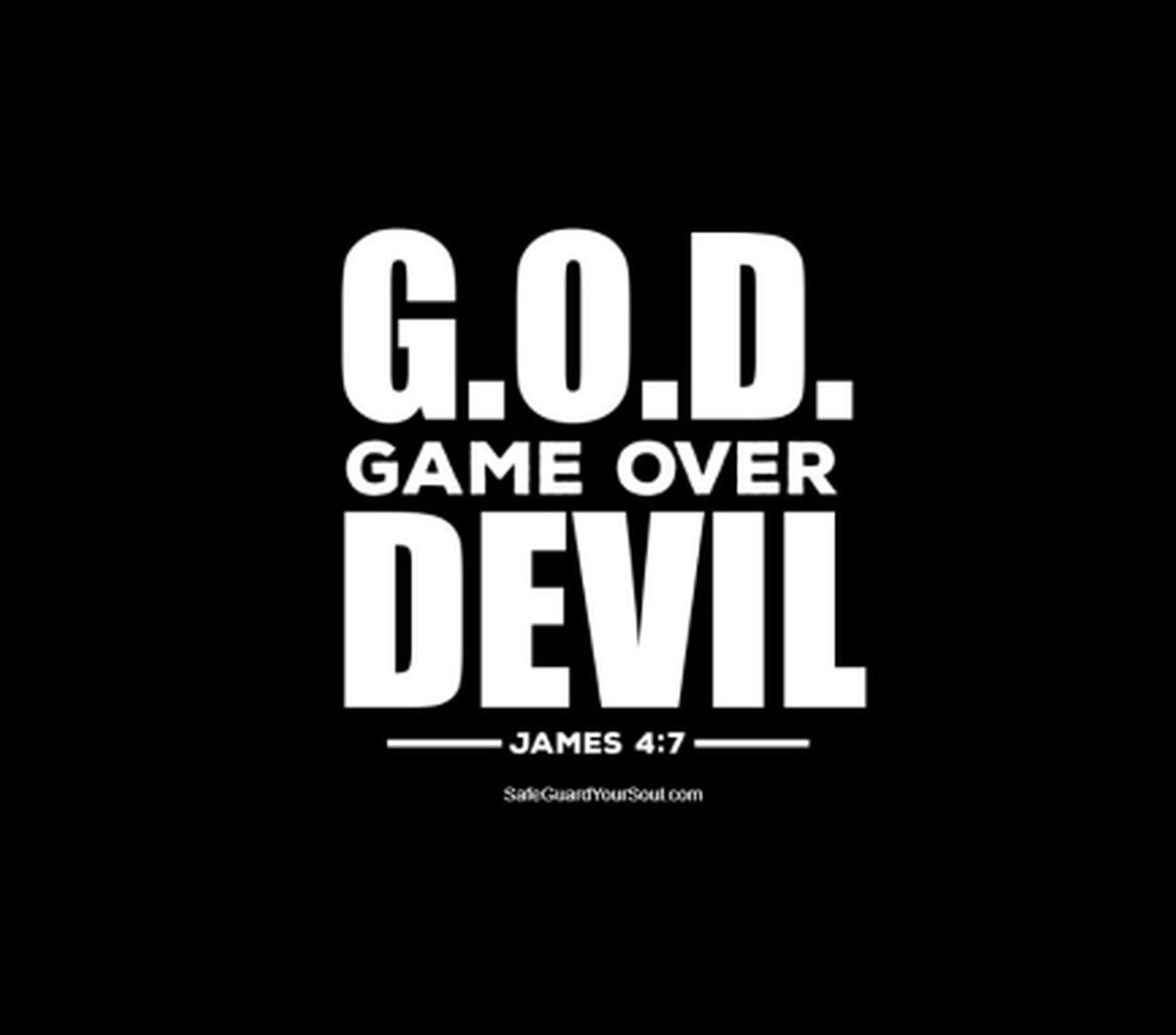
Abiding
How to Give Alms, Pray, Forgive Others, Fast, and Lay Up Treasure in Heaven [podcast]

Breakdown of Jesus’ Teaching in Matthew 6
- How to Give Alms.
- How to Pray.
- The Essential of Forgiving Others.
- How to Fast and How Not to Fast.
- The Importance of Laying up Treasure in Heaven.
Matthew 6
Giving to the Needy
“1 Take heed that ye do not your alms before men, to be seen of them: otherwise ye have no reward of your Father which is in heaven.
2 Therefore when thou doest thine alms, do not sound a trumpet before thee, as the hypocrites do in the synagogues and in the streets, that they may have glory of men. Verily I say unto you, They have their reward.
3 But when thou doest alms, let not thy left hand know what thy right hand doeth:
4 That thine alms may be in secret: and thy Father which seeth in secret himself shall reward thee openly.”
The Disciple’s Prayer
“5 And when thou prayest, thou shalt not be as the hypocrites are: for they love to pray standing in the synagogues and in the corners of the streets, that they may be seen of men. Verily I say unto you, They have their reward.
6 But thou, when thou prayest, enter into thy closet, and when thou hast shut thy door, pray to thy Father which is in secret; and thy Father which seeth in secret shall reward thee openly.
7 But when ye pray, use not vain repetitions, as the heathen do: for they think that they shall be heard for their much speaking.
8 Be not ye therefore like unto them: for your Father knoweth what things ye have need of, before ye ask him.
9 After this manner therefore pray ye: Our Father which art in heaven, Hallowed be thy name.
10 Thy kingdom come. Thy will be done in earth, as it is in heaven.
11 Give us this day our daily bread.
12 And forgive us our debts, as we forgive our debtors.
13 And lead us not into temptation, but deliver us from evil: For thine is the kingdom, and the power, and the glory, for ever. Amen.
14 For if ye forgive men their trespasses, your heavenly Father will also forgive you:
15 But if ye forgive not men their trespasses, neither will your Father forgive your trespasses.”
Fasting
“16 Moreover when ye fast, be not, as the hypocrites, of a sad countenance: for they disfigure their faces, that they may appear unto men to fast. Verily I say unto you, They have their reward.
17 But thou, when thou fastest, anoint thine head, and wash thy face;
18 That thou appear not unto men to fast, but unto thy Father which is in secret: and thy Father, which seeth in secret, shall reward thee openly.”
Lay Up Treasures in Heaven
“19 Lay not up for yourselves treasures upon earth, where moth and rust doth corrupt, and where thieves break through and steal:
20 But lay up for yourselves treasures in heaven, where neither moth nor rust doth corrupt, and where thieves do not break through nor steal:
21 For where your treasure is, there will your heart be also.
22 The light of the body is the eye: if therefore thine eye be single, thy whole body shall be full of light.
23 But if thine eye be evil, thy whole body shall be full of darkness. If therefore the light that is in thee be darkness, how great is that darkness!
24 No man can serve two masters: for either he will hate the one, and love the other; or else he will hold to the one, and despise the other. Ye cannot serve God and mammon.”
Fear Not
“25 Therefore I say unto you, Take no thought for your life, what ye shall eat, or what ye shall drink; nor yet for your body, what ye shall put on. Is not the life more than meat, and the body than raiment?
26 Behold the fowls of the air: for they sow not, neither do they reap, nor gather into barns; yet your heavenly Father feedeth them. Are ye not much better than they?
27 Which of you by taking thought can add one cubit unto his stature?
28 And why take ye thought for raiment? Consider the lilies of the field, how they grow; they toil not, neither do they spin:
29 And yet I say unto you, That even Solomon in all his glory was not arrayed like one of these.
30 Wherefore, if God so clothe the grass of the field, which to day is, and to morrow is cast into the oven, shall he not much more clothe you, O ye of little faith?
31 Therefore take no thought, saying, What shall we eat? or, What shall we drink? or, Wherewithal shall we be clothed?
32 (For after all these things do the Gentiles seek:) for your heavenly Father knoweth that ye have need of all these things.
33 But seek ye first the kingdom of God, and his righteousness; and all these things shall be added unto you.
34 Take therefore no thought for the morrow: for the morrow shall take thought for the things of itself. Sufficient unto the day is the evil thereof.”
Support | STORE | Podcasts | Jail/Prison Ministry | Mexico Mission here | All Ministry Updates | The Return of Christ | Stewardship | Apostate Modern Church Exposed | Beware of the BUZZ WORD Bandits [podcast] | Preach the Word | Wolves Exposed | Giving | Fellowship | Christology = the Study of Christ


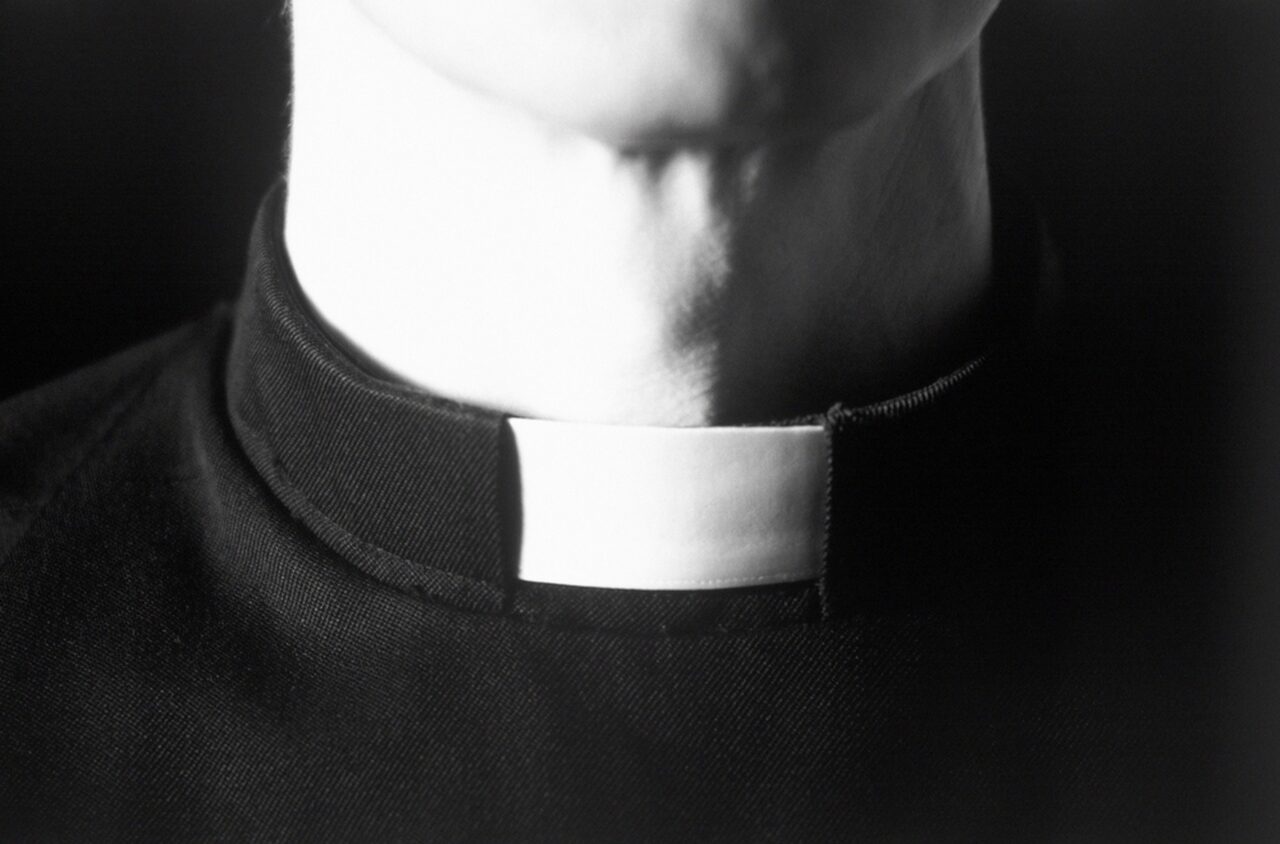
Abiding
The Core Values of the Modern Church Agenda Exposed [podcast]

Lots of occultic symbolism in the art below.
The “church growth” industry is a multi-million dollar enterprise with books, seminars, selling sermons, etc., on how to build a large church, how to grow the nickels, noses, and numbers. Is this what Jesus had in mind when He stated “I will build my church”? (Matthew 16:18)
“Ye are bought with a price; be not ye the servants of men.” 1 Corinthians 7:23
Do you spend more time in “church” than in the Bible itself? Wow! Red flags flying!
“Ye therefore, beloved, seeing ye know these things before, beware lest ye also, being led away with the error of the wicked, fall from your own stedfastness.” 2 Peter 3:17
So you are listening to some slick talker preach and yet he’s not using the BIBLE essential words like hell, repentance, holiness, the cross, the blood of Jesus, the return of Christ, etc? Repent and RUN!
The vast majority of so-called pastors today are more interested in getting you to join their church club, to become a member of their church, than they are about truly feeding the flock of God with the whole counsel of Scripture, equipping you for ministry, and winning souls to Jesus (John 21:15-17; Acts 20:20-32; Ephesians 4:11-12; 1 Peter 5:1-6, etc.). Prove it wrong.
Church Membership Exposed | The 501(C)(3) Deception | The Modern Church
Support | STORE | Podcasts | The Return of Christ | Stewardship | Apostate Modern Church Exposed | Beware of the BUZZ WORD Bandits [podcast] | Preach the Word | Wolves Exposed



Abiding
Mary hath Chosen that Good Part [podcast]

Luke 10:38-42
Mary = loving relationship with Jesus, not just being busy with doing, with labor, with performing works such as what Martha was doing. First and foremost, Jesus saved us for relationship with Him and the Father (John 17:3). And here our Savior expresses that knowing, loving, adoring, and listening to Him are at a divine premium, they are most important to God. That’s what God desires – for us to delight ourselves in Him (Psalms 37:4).
“Delight thyself also in the LORD; and he shall give thee the desires of thine heart.” Psalms 37:4
David’s brothers looked the part but they couldn’t and wouldn’t even face Goliath, much less slay him. David though, was spending time alone with the LORD, listening to His voice and tending to the sheep. He who is the only man God ever said was “a man after mine own heart,” was used mightily of God to slay the giant (Acts 13:22; 1 Samuel 17).
Isn’t this how we are with our children? Wouldn’t every parent rather their precious children sit in their mom or dad’s lap telling their parent how much they (the child) loves them (the parent)? That’s the biggest heart melt we know, right?
Like David, the most powerfully used warriors are first worshippers.
Our real, our genuine relationship with the LORD is that place out of which His power and grace (divine enablement) will flow. Like David, we must be primarily, and first and foremost worshippers. Out of that rich communion with the Savior will flow the warrior anointing of the LORD who is “a man of war” (Exodus 15:3).
Many who sense the call of God on their lives to minister go to seminary. Sad. We must go to God ourselves – in prayer, a life of prayer, relentlessly seeking His holy face in His Word for ourselves.
“But thou, when thou prayest, enter into thy closet, and when thou hast shut thy door, pray to thy Father which is in secret; and thy Father which seeth in secret shall reward thee openly.” Matthew 6:6
Private prayer with the LORD precedes God using us. Those who seek God in “secret” will be “openly” rewarded by Him.
“The little estimate we put on prayer is evidence from the little time we give to it.” EM Bounds
“A sinning man stops praying. A praying man stops sinning.” – Leonard Ravenhill
Luke 10
38 Now it came to pass, as they went, that he entered into a certain village: and a certain woman named Martha received him into her house.
39 And she had a sister called Mary, which also sat at Jesus’ feet, and heard his word.
40 But Martha was cumbered about much serving, and came to him, and said, Lord, dost thou not care that my sister hath left me to serve alone? bid her therefore that she help me.
41 And Jesus answered and said unto her, Martha, Martha, thou art careful and troubled about many things:
42 But one thing is needful: and Mary hath chosen that good part, which shall not be taken away from her.
“Mary hath Chosen that Good Part”
The “good part” Mary chose consists of…
- Mary made the only wise choice “Mary hath chosen.”
- Mary put Jesus first. She put the Savior first, not herself or her idea of what it meant to serve Him.
- Jesus says here that choosing to put and keep Him first is the “one thing [that] is needful” or most necessary (v39, 42).
- Sitting before Jesus Himself and not searching for God outside of God Himself, primarily that is. All other learning is supplemental and subservient to that which the LORD tells us specifically, in His Word.
Worshippers become the most powerful workers God uses!
Like many today who are shallow rooted, Martha was a worker but not first and foremost a worshipper. Mary was a worshipper who loved to spend time with Jesus. Therefore she was empowered by God Himself via that fellowship with Him to walk in His holy compassion and to do His works with His power and for His glory (1 Corinthians 15:10).
When our works are not fruitful as they should be, perhaps it can be traced back to our lack of fellowship with our LORD. As we fellowship with Him, putting Him first and not ourselves, our vessel, our cup will run over with His goodness…. it will spill over onto others! (See Psalms 23:5.) That’s when our labor will carry His eternal weight of glory (2 Corinthians 4:17).
“Thou preparest a table before me in the presence of mine enemies: thou anointest my head with oil; my cup runneth over.” Psalms 23:5
When Jesus came, it was God bringing Heaven to the people – to forgive their sins and make them whole (Matthew 9:6). This was the foretold fulfillment of His kingdom coming on earth as it is in heaven (Matthew 6:10).
When Jesus came, He went to the people, to heal, to save, to make whole (Matthew 9:35-38; Acts 10:38, etc.).
As we go, Jesus is with us, “even unto the end of the world. Amen” (Matthew 28:20).
Daily, our LORD is using His people to bring Heaven to the people. As the Holy Spirit fills our lives, His blessed presence and fruit in our lives is going to over overflow onto others.
A sister in Christ once told me that “The best Marthas are first Marys.” Think about that one in light of what we read in this passage when Jesus visited the home of Mary and Martha (Luke 10:38-42). Those who sit at Jesus’ feet to hear His holy counsel, are changed into His image and become reservoirs for His blessed glory. Their cups run over onto others!
“Prayer is of transcendent importance. Prayer is the mightiest agent to advance God’s work. Praying hearts and hands only can do God’s work. Prayer succeeds when all else fails.” E.M. Bounds
When worshiping Jesus is our first priority, the work He uses us to do WILL carry His unction and bring fruit to bear for His eternal glory.
Rote obedience to minister to others, while not anchored in intimacy with our LORD, will not yield an abundant harvest, fruit. In contrast, we can be blessed to have God’s power and grace to do His work and that happens as we are truly communing, fellowshipping in the construct of that oneness relationship He made us for (John 15; 17).
Knowing God’s Word and obeying Him is not an automatic progression (John 8:31-36). One can know the Bible and not its Author. Or, one can know the Bible well and not know the Author well (Job 22:21-28). Obeying God’s Word requires knowing Him, abiding in an intimate fellowship with Him, thereby enabling that saint the grace (divine enablement) to obey Him (John 5:39-40; 7:17; 14:21-23; 15:1-16, etc.).
Martha “received him.” Many of us have “received” Jesus, have been saved by Him (John 1:12), yet like Martha we aren’t sitting at His holy feet, listening to Him speak through His Word. Like Martha, we also are “cumbered about much serving.”
It should be understood that our work can exceed our worship, our hospitality can exceed our holiness, our serving can exceed our sanctification, etc. That would be defined as imbalance (Proverbs 11:1).
In Luke 10:38-42, notice that Mary sat directly at Jesus’ feet and no other. When we arise in the morning to commune with the LORD, such is to be direct communication between you and Him, alone (Matthew 6:6). That would mean perhaps that when you arise in the morning you aren’t reading some other book about God or turning on a podcast or TV program to find and commune with the LORD. No, those things involve others. We must directly commune with the LORD in prayer and in HIS Word. How else shall we be able to discern the “MANY false prophets” Jesus warned us “shall deceive many”? (Read Matthew 24:11; 1 John 4:1.) How can we know the counterfeit if we don’t know the real? We can’t.
In principle, Martha is a person like Cain, a person who chose to do things their own way, not God’s – because they are not truly submitted to God. Does that describe your life friend? Jesus calls us home to Himself (Matthew 11:28-30).
Are we attempting to serve the LORD on our own terms or are we sitting before Him, hearing His voice as we are worshipfully, joyfully submitted to Him on His stated terms?
“The men who have done mighty things for God have always been mighty in prayer, have well understood the possibilities of prayer, and made the most of these possibilities. The Son of God, the first of all and the mightiest of all, has shown us the all-potent and far reaching possibilities of prayer. Paul was mighty for because he knew, how to use, and how to get others to use, the mighty spiritual forces of prayer.” EM Bounds, The Complete Works of E.M. Bounds on Prayer, P. 341
When we are brought to the point of true repentance it will be obvious in that we will do things God’s way and no longer our own. Like Mary, we will be settled at His feet, hearing His Word, His voice. The Mary person is in love with and submitted to the LORD and Savior she so joyfully worships.
“Jesus never taught His disciples how to preach, only how to pray. To know how to speak to God is more than knowing how to speak to people. Power with God is the first thing, not power with people. Christ loves to teach us how to pray.” –Andrew Murray, With Christ in the School of Prayer, pp. xxiii-xxiv
Support | STORE | Podcasts | The Bridegroom is Calling His Bride | Purifying Ourselves as He is Pure [podcast] | 10 Clues Your Love for God is Waxing Cold [podcast] | More on the Sabbath of the New Testament – Jesus!
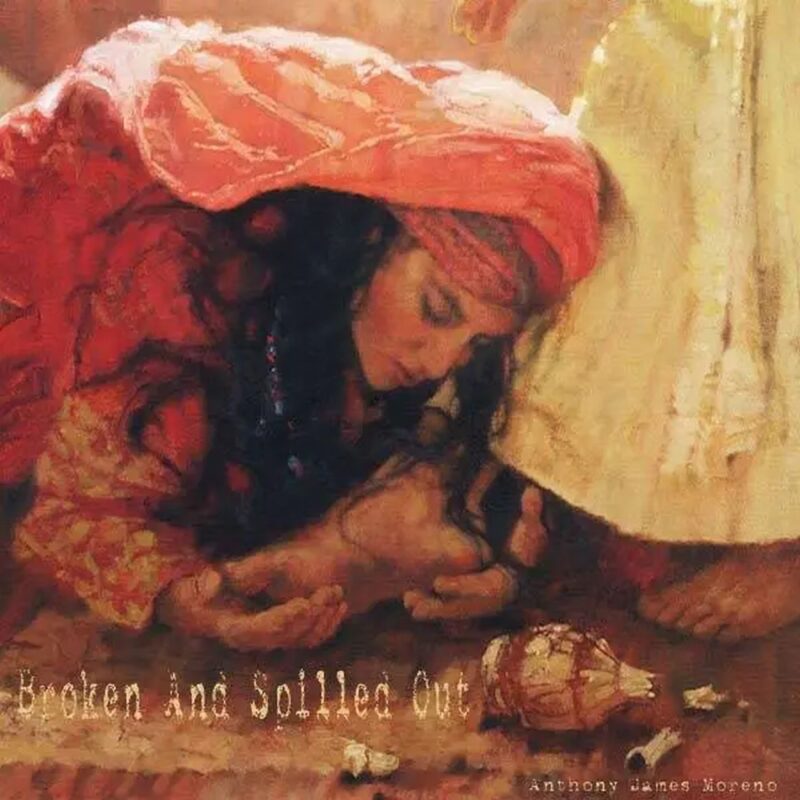

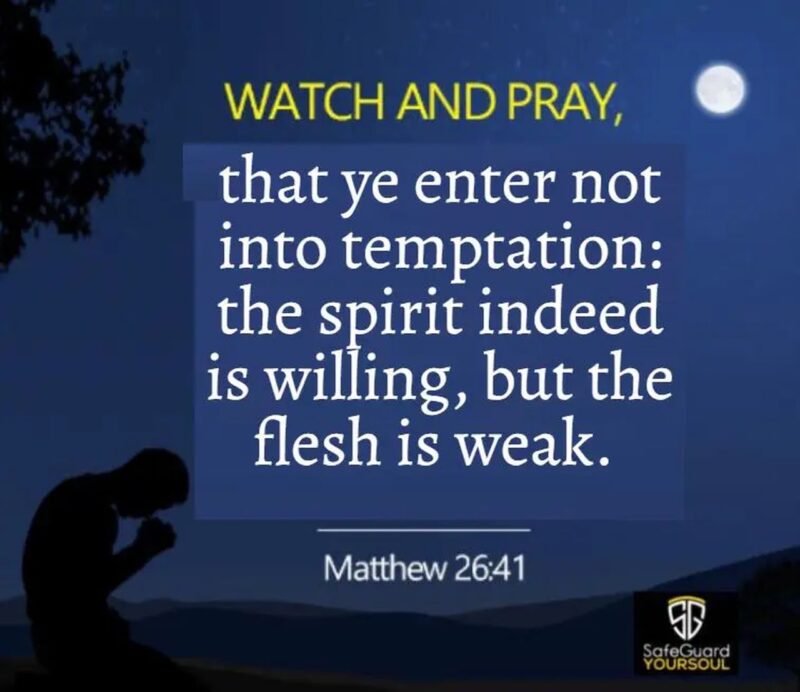

 America11 months ago
America11 months agoThe Drugging of America: The Pharmakeia Sorcery Deception [podcast]

 Articles2 years ago
Articles2 years agoChildren being Rescued in Tunnels: Happening Now – UPDATE!

 Articles8 years ago
Articles8 years agoSelf-Examination in Preparation for the Lord’s Return

 Apostasy2 years ago
Apostasy2 years agoSHOCKING List of False Prophets Most Believe are True











